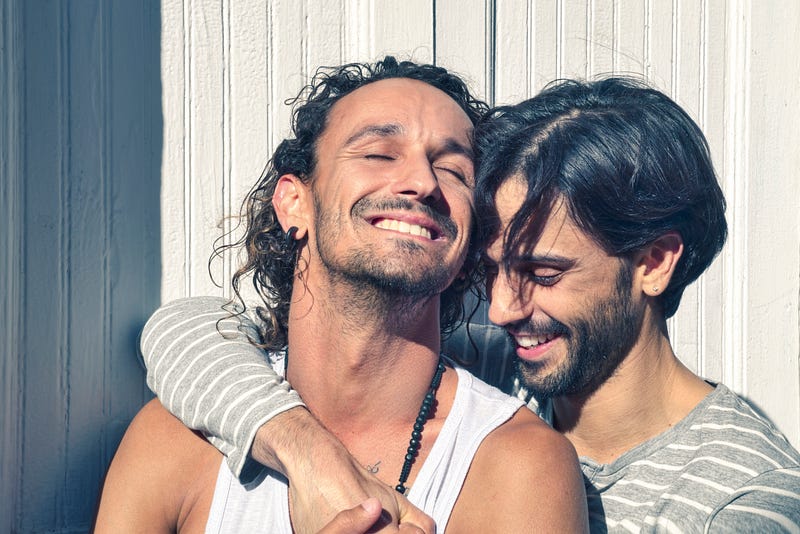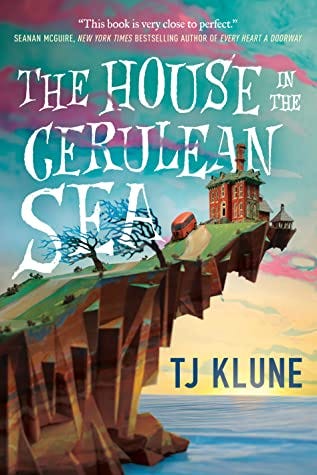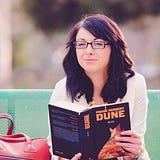Why We Need More Books With Queer Protagonists
Not everyone is biased. Not everyone is aware either.

The story of how one book changed my perception
I have read books that show same-sex love. Mostly, it’s the adorable side-character who isn’t straight. Or it could be the bumbling dork, always falling over their feet, suddenly coming out to everyone as gay.
Maybe I’m reading the wrong books, but I have read very few books with queer protagonists.
Sure, I have read Becky Albertelli’s Simon vs The Homosapiens Agenda and Leah on the Offbeat, Adam Silvera’s They Both Die at the End, and Taylor Jenkins Reid’s The Seven Husbands of Evelyn Hugo. These books did have queer representation, but the stories felt jaded, almost cliched, at least to me.
The trope always being: a character who wasn’t aware of their sexuality (or hadn’t acknowledged it to anyone, even themselves), suddenly meets a character of the same sex who sweeps them off their feet, and they find themselves head over heels in love.
Yes, I understand this is possible, and this is probably what happens. But somehow, the focus in these books wasn’t on the love blossoming between the characters. The focus is always on the fact that the characters are gay. In their struggle for identity, the beauty of their love is not conveyed heartwarmingly enough.
The Book That Changed It All
This impression changed when I read a beautiful little book called The House on the Cerulean Sea by T J Klune. On the surface of it, this is a story about accepting your imperfections and learning to live with them. About getting back up on your feet in a world designed to keep pushing you down. About finding kin among strangers, and understanding that you don’t need to be tied by blood to be part of a family.

The protagonist, a 40-year-old man, Linus, finds himself warming up to the vital and wondrous Arthur. There is something magical in the way the romance blooms between the two men, and how, because of the strong bond of friendship they share, it is never the centre point of their relationship. Linus begins to notice little things about Arthur — his smile, the wrinkles around his mouth, the way his ankles always show through his too-short pants — and before he realises, he is already too far gone.
You can almost feel your heart racing each time Linus and Arthur steal glances at each other. When their hands brush or their thighs touch, you get goosebumps all over your skin. The fire burning between them is so intense, the reader gets a strong urge to jump into the pages and make these two understand how perfect they are for each other, only if they let go of their inhibitions.
The blooming romance between the two men — both in their forties — was so subtle and nicely done, that I found myself wondering: why have I never come across such masterful and delicate handling of gay romance before?
What Makes Memorable Gay Characters
I am not biased against LGBTQ+ characters. But, I am not fully aware of everything that goes on in their minds. From the little understanding of love I have, I believe the feelings they have for another person should not vary much from the fluttering of heart and the quickening of breath that a straight person experiences on bumping into their crush in the hallway.
When I read about gay love, I want to feel the emotions of a first crush, the butterflies in the stomach, the sudden realisation that you cannot speak coherent sentences, no matter how hard you try.
I want to see the beauty of how this crush gathers fuel and blazes into an inferno. I want to see lovers’ tiffs and a mature, stable relationship blossom out of the initial bumblings of infatuation. I hope I am able to put my thoughts into words accurately, but I feel this is what was missing in the books I had been previously reading.
It comes down to honesty
Honesty, that’s what I want. As a reader, I am not interested in rants about how hard it is to be gay (although I believe that is an important topic and should be spoken about, but for books that are marketed as “Romance”, the focus should be on the love and not the identity crisis).
Here is a line from the author T. J. Klune’s Goodreads bio-
Being queer himself, TJ believes it’s important — now more than ever — to have accurate, positive, queer representation in stories.
This is so important and relevant.
If queer authors don’t write about queer romance, all we will be left with are tropes and cliches that only serve as comic relief and do nothing to educate.
The importance of authentic portrayal
There might be many readers like me who are not prejudiced against the LGBTQ+ community. But, because of the lack of representation in literature, they might not have enough information, and hence, be unaware of several aspects.
Authentic portrayal of queer people in literature is important as it can impart an understanding of the behaviour and relationships and help readers appreciate the emotions and struggles people can go through. Rather than resorting to cliches or playing scare tactics meant to guide vulnerable readers back into an “acceptable” lifestyle of heterosexuality, there should be more books with queer protagonists who go through the same emotions of love and fight their way through all obstacles to win it in the end.
Final Thoughts
Love is love. It is blind to gender, colour and race. It is beautiful and heartbreaking, breezy and breath-taking.
I understand that people who don’t identify as straight have to struggle with their identity and their lives are complex, compared to their peers. I understand that and respect their struggle.
However, when I am reading a book that’s been marketed as a romance, I would love to learn about the emotions that go in the head of the queer characters. Of course, the struggle is a part of their love, and I am genuinely interested in knowing about that. But, I would also appreciate some raw, unadulterated emotions.
Please note that I am a huge supported of LGBTQ+ rights, and I will always strive to do my bit in creating a world that’s safe for everyone. However, as a reader, I want more books with queer characters. When they are marketed as “Romance”, I want to read about the emotions and how a relationship between two people of the same gender who love each other blossoms.
(Note: The links mentioned in this article are affiliate links. If you choose to purchase these books through these links, it will help me earn a small amount of money — at no extra cost to you. Thanks!)
Here are some other fun articles you might enjoy:


For book reviews and recommendations, follow me on Goodreads.
